A former slave turned legendary lawman, Bass Reeves was feared by outlaws and respected by his peers. With a towering 6’2″ frame, an imposing demeanor, and a reputation for being a relentless lawman, Bass Reeves was a force to be reckoned with. He brought law and order to the untamed frontier, using his wit, marksmanship, and fearlessness to bring criminals to justice.
Born into slavery in 1838 in Crawford County, Arkansas, Bass was raised under brutal conditions in the slave colony owned by William Steele Reeves, an Arkansas state legislator.
At the outbreak of the Civil War, George Reeves — the slave owner’s son — organized a company within the 11th Regiment of the Texas Cavalry and joined the Confederate Army. Bass was forced to accompany George as his personal slave.
At some point during the war, George and Bass fought over a card game, with Bass severely thrashing George before escaping. Bass fled to the Indian Territory (now part of Oklahoma) where he remained a fugitive. He found refuge among the various Native American tribes and learned the languages and tracking skills of the Cherokees, Creeks, and Seminoles.
George Reeves survived his beating by Bass and left the Civil War with the rank of colonel. The slave owner would later become a three-time Texas State Legislator and Speaker of the House. In 1882, George was bitten by a rabid dog and locked in a padded wooden shed, where he died from rabies.
Freed by the Thirteenth Amendment in 1865, the 27-year-old Bass immediately left his frontier life in the Territory to settle down, start a family and become a farmer near Van Buren, Arkansas.
Bass and his wife Nellie raised 11 children on their Arkansas homestead. Between his farming and ranching chores, Bass occasionally took work as a scout and guide for U.S. deputy marshals working in the Territory.
At the time, fugitives, bandits, and outlaws ruled the Territory. There was no federal or state jurisdiction in the Territory, so it was the perfect place to hide from the law.
That changed when the Federal Western District Court was moved to Fort Smith, Arkansas, and Hanging Judge Parker arrived on May 10, 1875. Law and order were about to be brought into the Indian Territory.
Parker appointed U.S. Marshal James F. Fagan to recruit 200 deputy U.S. marshals to clean up the Territory. Bass’s reputation as a tracker, marksman skills, and ability to communicate with several Native American tribes made him a top pick for Fagan.
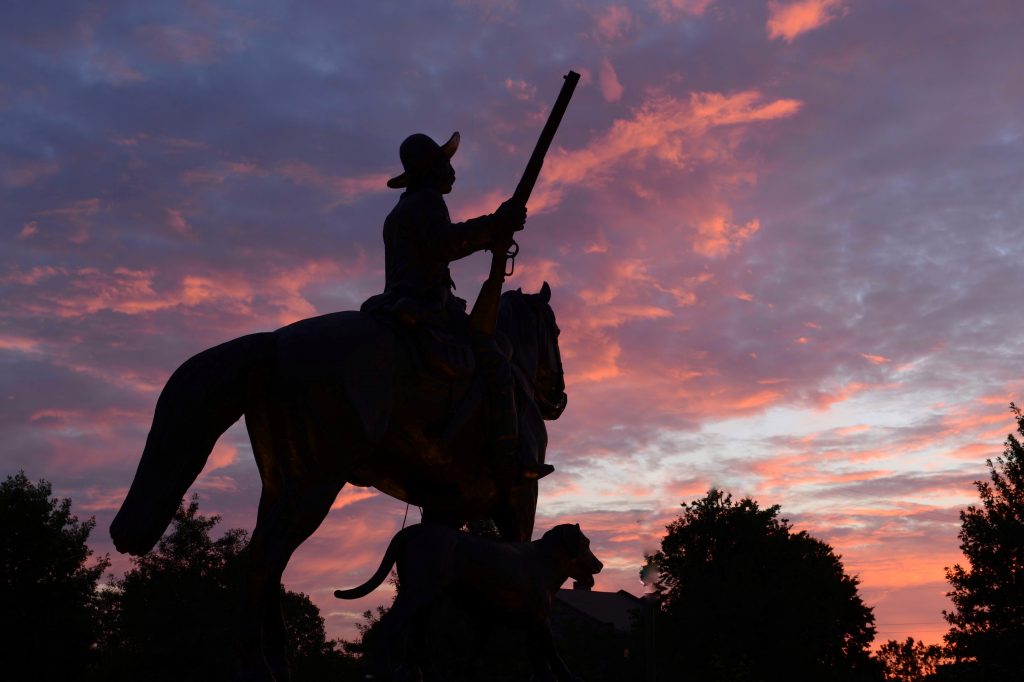
In 1875, Reeves became the first black deputy U.S. marshal west of the Mississippi and was assigned to serve the Western District of Arkansas.
Bass could not read or write, so he memorized each arrest warrant by having someone read the contents to him while he was in Fort Smith. Then, he would load his pockets with the warrants and set out on his white horse to hunt for fugitives. Armed with two Colt pistols he wore butt forward, Bass spent months at a time patrolling the Territory for outlaws and enforcing Judge Parker’s orders of “Bring them in alive — or dead!”
Over his 32-year career as a lawman, Bass tracked down and captured over 3,000 criminals. Despite having his hat and belt shot off in separate gunfights, Bass killed 14 outlaws and never suffered any injuries.
Aside from his bravery, tracking, and sharpshooting skills, Bass was also known for his ingenuity and use of disguise. He often rode the Territory dressed as a cowboy, farmer, gunslinger, or outlaw to get closer to his quarry.
One of Bass Reeves’ more memorable arrests occurred while pursuing two outlaw brothers. Bass had organized a posse to bring in the brothers, who he believed were hiding at their mother’s cabin near the Red River between the Arkansas and Texas border.
Bass had the posse set up camp 28 miles from the cabin while he walked in, disguised as a tramp hiding his pistols, handcuffs, and badge under his dirty clothes. He knocked on the cabin door carrying a cane and wearing a floppy hat with three bullet holes.
A woman opened the door, and Bass told her he was on the run and was being pursued and shot at by a posse. She invited him in for a meal. As they ate, the woman mentioned her two outlaw sons and suggested that they should join forces. Reeves pretended to be interested, gaining the mother’s trust and permission to stay the night.
Later that evening, Bass heard a whistle from outside that the mother answered. Soon, two riders arrived and spoke with the woman before coming inside to meet Bass. After swapping stories about their crimes, the three men agreed to join forces. Bass spent the night in the same room as the brothers, carefully watching them as they slept. When they were snoring soundly, he handcuffed them without waking them up.
The following morning, Bass marched the two outlaws out of the house and towards the waiting posse 28 miles away. The outlaws’ mother followed for the first three miles, cursing Reeves the entire time. When the trio arrived at the posse’s camp, Bass turned the outlaws over to the authorities and received his $5,000 reward.
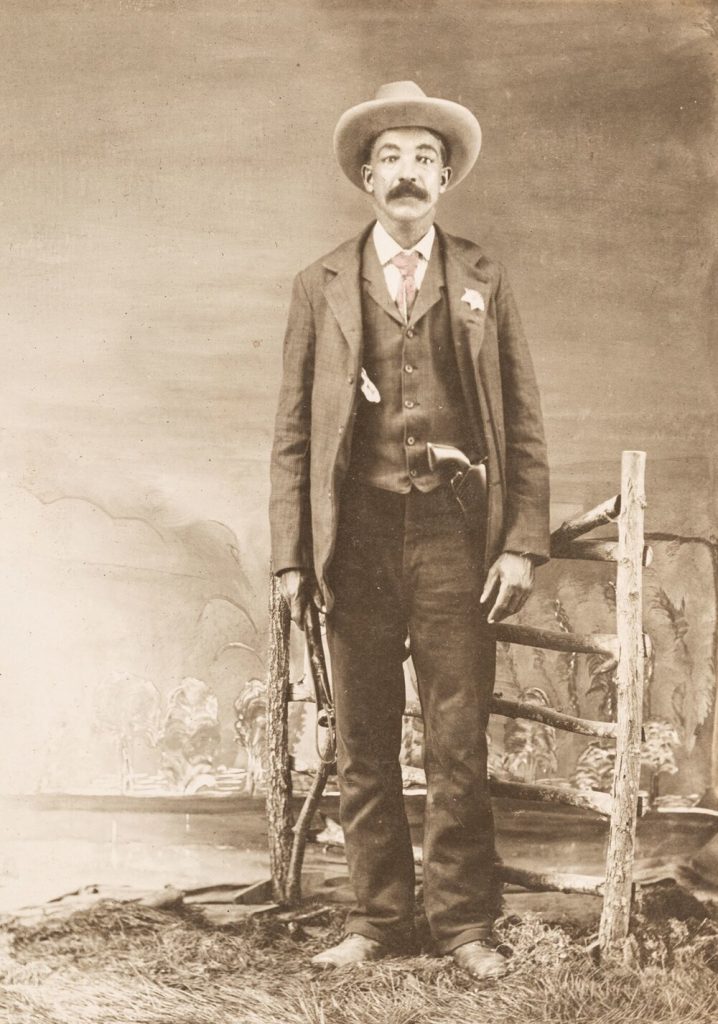
However, the fugitive Bass was most proud of bringing to justice was Bob Dozier. Dozier was a cattle rustler, bank robber, stagecoach bandit, land swindler, and leader of a horse-stealing ring who had successfully evaded the law for years. He was also known for torturing and murdering people for information.
Bass took the warrant for Dozier. When the outlaw learned the famed marshal was on his trail, Dozier sent a message to Bass that he would kill him if he didn’t stop hunting him. Bass got word sent to Dozier that he was ready to give Dozier the chance when he caught up to him.
After several months, Bass had tracked Dozier to the Cherokee Nation. With a storm coming in, Bass and one posse member decided to set up camp early on the night of December 20, 1878. As the two men started their preparations, a bullet whizzed by Bass’ head.
Ducking for cover and ready to return fire, the men only heard silence.
Then, Bass saw a shadow moving through the trees and fired twice. The gunfire was quickly returned, and Bass quickly dropped to cover again.
Dozier, believing he hit Bass, started laughing from the treeline.
Bass jumped up and ordered Dozier to drop his gun.
The outlaw dropped into a squat as he brought his rifle to bear on the lawman.
But Bass was faster and shot Dozier in the neck, killing him instantly.
Despite his many accomplishments, Bass Reeves’ life had its challenges. A devoted family man, Bass made a point of being present for his family as much as possible, often taking breaks from work to visit them.
His wife, Nellie, died of consumption (tuberculosis) in 1896.
Then, on June 7, 1902, his son Benjamin (Bennie) murdered his estranged wife after accusing her of infidelity.
Even though the news shook him, Bass insisted on being the lawman to arrest his son and bring him to justice.
Bennie was later tried, convicted, and served 11 years at Fort Leavenworth before his sentence was commuted. Bass would never see his son again.
Bass retired from his position as a deputy U.S. marshal in 1907 and served two years as an officer in the Muskogee Police Department before he became ill and stepped down.
After retirement, Bass’ health continued to deteriorate, and he died of Bright’s Disease on January 12, 1910.
Bass Reeves was among the most successful law enforcement officials of his time, but the public largely forgot his legacy.
However, there has been a renewed interest in his life and accomplishments in recent years. In 2010, the U.S. Marshals Service honored Bass by unveiling a bronze statue in his likeness outside the U.S. Marshals Museum in Fort Smith, Arkansas. The figure depicts Bass on horseback, with a shotgun in his hand, ready to pursue outlaws.
Bass Reeves’ life and career are a testament to the courage and determination of those who seek justice and equality in the face of adversity. He overcame the brutal conditions of slavery and discrimination to become a true hero. He will forever be remembered as one of the most successful lawmen in American history.



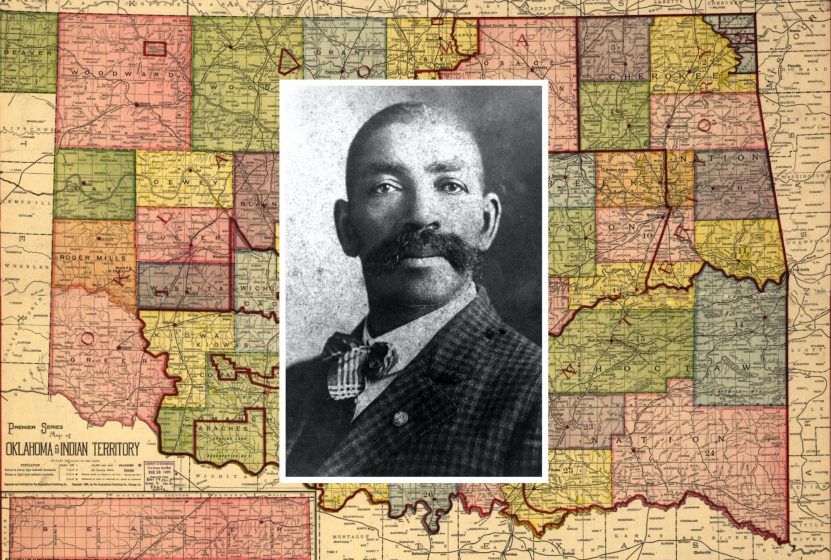
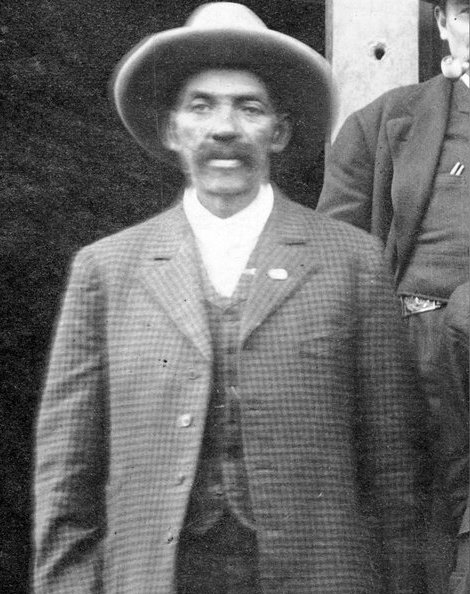
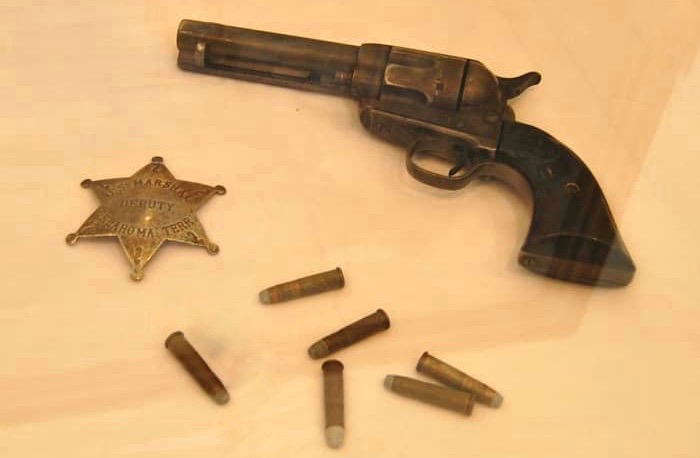
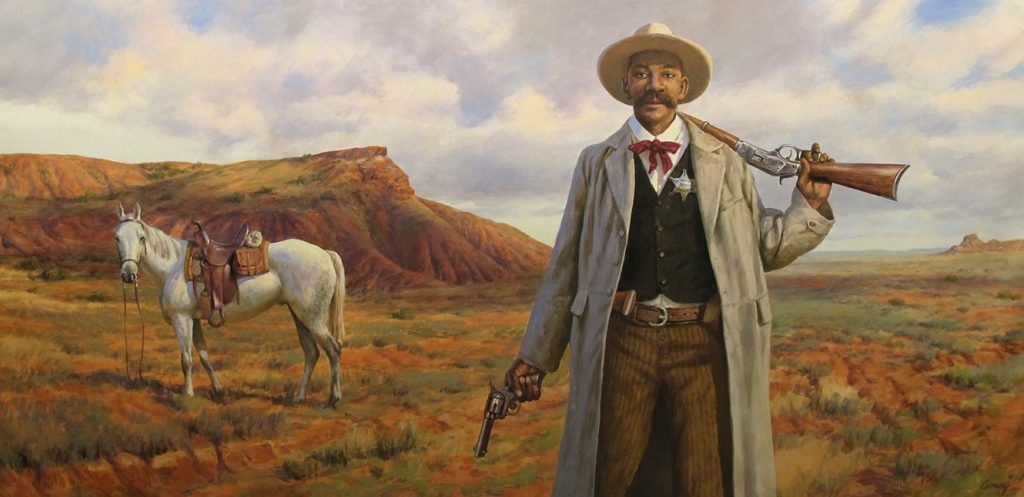
That’s a great story. Definitely something to live up to.
Deputy US Marshal
Matt Wiggins